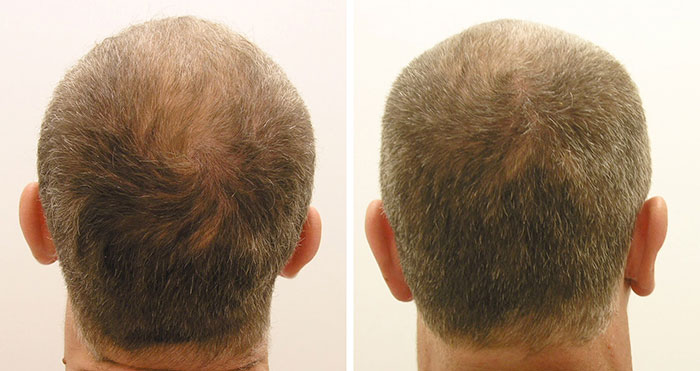Hair Anatomy And Physiology
Hair is an incredible part of our bodies, with its unique anatomy and physiology. It grows from hair follicles embedded in the skin’s dermis. Each strand comprises a protein called keratin, which gives hair its strength. The hair shaft, the visible part, has three layers – the medulla, cortex, and cuticle. The medulla is the innermost layer, the cortex provides strength and colour, and the cuticle is the outer protective layer.
Understanding hair anatomy and physiology is important for proper hair care and addressing issues such as hair loss and damage. Regular washing, conditioning, and protection from excessive heat or chemicals maintain hair health. Balanced nutrition and hydration also support strong, vibrant hair. Appreciating hair’s structure and function enhances our overall well-being.
The Most Common Causes Of Hair Loss
Genetics
Hair loss can be inherited from family members, particularly through genes associated with pattern baldness. This hair loss typically follows a predictable pattern and is more common in men, although women can also be affected.
Hormonal Changes
Fluctuations in hormone levels, such as those occurring during pregnancy, childbirth, menopause, or due to thyroid imbalances, can disrupt the normal hair growth cycle. Hormonal changes can lead to temporary or permanent hair loss, depending on the underlying cause and duration of the imbalance.
Medical Conditions
Hair loss can result from medical conditions like scalp infections, autoimmune diseases, iron deficiency anaemia, and certain medications such as contraceptives, hormonal therapy, and chemotherapy.
Excessive stress and immune imbalance
Excessive stress can cause hormonal and immune imbalances, leading to hair loss as the immune system may attack hair follicles. Chronic stress can also trigger conditions like alopecia areata, resulting in patchy hair loss. Stress management may help reduce such hair loss.
Lifestyle Factors
Stress, poor nutrition, rapid weight loss, and harsh hairstyling practices (like tight ponytails, braids, or frequent use of heat styling tools) can damage hair follicles and increase shedding or breakage. Making healthy lifestyle choices and adopting gentle hair care practices can help minimise hair loss associated with these factors.
Treatment for Hair Loss
Platelet-Rich Plasma (PRP) Therapy
Platelet-rich plasma (PRP) treatment is a procedure for hair loss that involves extracting the patient’s blood, isolating the PRP, and injecting it into the scalp. The platelets in PRP stimulate hair follicles and increase blood flow, promoting hair growth. This minimally invasive procedure, usually done in multiple sessions, is promising for early-stage hair loss.
Low-Level Laser Therapy (LLLT)
Scalp Micropigmentation (SMP)
Hair Transplant Surgery
Hair Loss Diet
For healthy hair, it’s vital to give it enough nutrients. These five are especially important:
- Iron is crucial for maintaining healthy hair, as it supports the proper functioning of hair follicles and promotes oxygen transportation to the scalp, aiding in hair growth and strength.
- Protein is essential for hair health as it provides the building blocks for hair growth. It strengthens hair strands, promotes growth, and helps repair damaged hair. Including sufficient protein in your diet is vital for maintaining strong and healthy hair.
- Vitamin B, including Biotin and B-complex vitamins, is crucial for healthy hair growth, producing new hair cells and preventing hair loss and breakage.
- Vitamin C is essential for healthy hair growth as it helps produce collagen, a key component of hair structure, and aids in the absorption of iron, which is necessary for hair strength and vitality.

